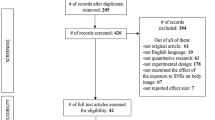Abstract
Internet-based support groups are a rapidly growing segment of mutual aid programs for individuals with chronic illnesses and other challenges. Previous studies have informed us about the content of online exchanges between support group members, but we know little about the ability of these interventions to change participants' perceptions of support. A randomized trial of 160 adult Type 2 diabetes patients provided novice Internet users with computers and Internet access to 1 of 4 conditions: (a) diabetes information only, (b) a personal self-management coach, (c) a social support intervention, or (d) a personal self-management coach and the support intervention. After 3 months, individuals in the 2 support conditions reported significant increases in support on a diabetes-specific support measure and a general support scale. Participants' age was significantly related to change in social support, but intervention effects were still significant after accounting for this relationship. This report is a critical first step in evaluating the long-term effects of Internet-based support for diabetes self-management. The discussion identifies directions for future research.
Similar content being viewed by others
REFERENCES
American Diabetes Association. (1997). Application information for Provider Recognition Program. Alexandria, VA: Author.
Barrera, M., Jr. (2000). Social support research in community psychology. In J. Rappaport & E. Seidman (Eds.), Handbook of community psychology (pp. 215–245). New York: Plenum.
Barrera, M., Jr., & Prelow, H. (2000). Interventions to promote social support in children and adolescents. In D. Cicchetti, J. Rappaport, I. N. Sandler, & R. P. Weissberg (Eds.), The promotion of wellness in children and adolescents (pp. 309–339).Washington, D.C.: CWLA Press.
Bogat, G. A., Sullivan, L. A., & Grober, J. (1993). Applications of social support to preventive interventions. In D. S. Glenwick & L. A. Jason (Eds.), Promoting health and mental health in children, youth, and families (pp. 205–232). New York: Springer.
Brennan, P. F., Moore, S. M., & Smyth, K. A. (1995). The effects of a special computer network on caregivers of persons with Alzheimer's disease. Nursing Research, 44, 166–172.
Burnett, K. F., Taylor, C. B., & Agras, W. S. (1992). Ambulatory computer-assisted behavior therapy for obesity: An empirical model for examining behavioral correlates of treatment outcome. Computers in Human Behavior, 8, 239–248.
Cohen, S. (1988). Psychosocial models of the role of social support in the etiology of physical disease. Health Psychology, 7, 269–297.
Cohen, S., Doyle, W. J., Skoner, D. P., Rabin, B. S., & Gwaltney, J. M., Jr. (1997). Social ties and susceptibility to the common cold. JAMA, 277, 1940–1944.
Cohen, S., & Hoberman, H. M. (1983). Positive events and social supports as buffers of life change stress. Journal of Applied Social Psychology, 13, 99–125.
Eggert, L. L., Thompson, E. A., Herting, J. R., & Nicholas, L. J. (1995). Reducing suicide potential among high-risk youth: Tests of a school-based prevention program. Suicide and Life-Threatening Behavior, 23, 276–296.
Ensel, W., & Woelfel, M. (1986). Measuring the instrumental and expressive functions of social support. In N. Lin, A. Dean, & W. Ensel (Eds.), Social support, life events, and depression (pp. 129–152). Orlando, FL: Academic Press.
Finn, J. (1996). Computer-based self-help groups: On-line recovery for addictions. Computers in Human Services, 13, 21–41.
Gackenbach, J. (1998). Psychology and the Internet: Intrapersonal, interpersonal, and transpersonal implications. San Diego, CA: Academic Press.
Glasgow, R. E., Barrera, M., Jr., McKay, H. G., & Boles, S. M. (1999). Social support, selfmanagement, and quality of life among participants in an internet based diabetes support program: A multi-dimensional investigation. Cyberpsychology and Behavior, 2, 271–281.
Glasgow, R. E., & Toobert, D. J. (1988). Social environment and regimen adherence among Type II diabetic patients. Diabetes Care, 11, 377–386.
Glasgow, R. E., Vogt, T. M., & Boles, S. M. (1999). Evaluating the public health impact of health promotion interventions: The RE-AIM framework. American Journal of Public Health, 89, 1322–1327.
Gottlieb, B. H. (1988). Support interventions: A typology and agenda for research. In S. W. Duck (Ed.), Handbook of personal relationships (pp. 519–541). New York: Wiley.
Gustafson, D. H., Hawkins, R., Boberg, E., Pingree, S., Serlin, R. E., Graziano, F., et al. (1999). Impact of a patient-centered, computer-based health information/support system. American Journal of Preventive Medicine, 16, 1–9.
Heller, K., Price, R. H., & Hogg, J. R. (1990). The role of social support in community and clinical interventions. In B. R. Sarason, I. G. Sarason, & G. R. Pierce (Eds.), Social support: An interactional view (pp. 482–507). New York: Wiley.
Heller, K., Thompson, M. G., Trueba, P. E., Hogg, J. R., & Vlachos-Weber, I. (1991). Peer support telephone dyads for elderly women: Was this the wrong intervention? American Journal of Community Psychology, 19, 53–74.
Humphreys, K. (1997). Individual and social benefits of mutual aid self-help groups. Social Policy, Spring, 12–19.
King, S. A., & Moreggi, D. (1998). Internet therapy and self-help groups-The pros and cons. In J. Gackenbach (Ed.), Psychology and the Internet: Intrapersonal, interpersonal, and transpersonal implications (pp. 77–109). San Diego, CA: Academic Press.
Kraut, R., Patterson, M., Lundmark, V., Kiesler, S., Mukopadhyay, T., & Scherlis, W. (1998). Internet paradox: A social technology that reduces social involvement and psychological well-being? American Psychologist, 53, 1017–1031.
Lichtenstein, E., Glasgow, R. E., & Abrams, D. (1986). Social support in smoking cessation: In search of effective interventions. Behavior Therapy, 17, 607–619.
Madara, E. J. (1997). The mutual-aid self-help online revolution. Social Policy, Spring, 20–26.
Olds, D. L., & Kitzman, H. (1993). Review of research on home visiting for pregnant women and parents of young children. The Future of Children, 3, 53–92.
Salem, D. A., Bogat, G. A., & Reid, C. (1997). Mutual help goes on-line. Journal of Community Psychology, 25, 189–207.
Stewart, A. L., Hays, R. D., & Ware, J. E. (1988). The MOS short-form general health survey: Reliability and validity in a patient population. Medical Care, 26, 724–735.
Street, R. L., Jr., Gold, W. R., & Manning, T. (Eds.). (1997). Health promotion and interactive technology: Theoretical applications and future directions. London: Erlbaum.
U.S. Department of Health and Human Services. (1991). Healthy people 2000: National health promotion and disease prevention objectives (DHHS Publication No. PHS 91–50213). Washington, DC: U.S. Government Printing Office.
Vaux, A. (1988). Social support: Theory, research, and intervention. New York: Praeger.
Weinberg, N., Schmale, J., Uken, J., & Wessel, K. (1995). Computer-mediated support groups. Social Work With Groups, 17, 43–54.
Weinberg, N., Schmale, J., Uken, J., & Wessel, K. (1996). Online help: Cancer patients participate in a computer-mediated support group. Health and Social Work, 21, 24–29.
Winzelberg, A. (1997). The analysis of an electronic support group for individuals with eating disorders. Computers in Human Behavior, 13, 393–407.
Author information
Authors and Affiliations
Rights and permissions
About this article
Cite this article
Barrera, M., Glasgow, R.E., McKay, H.G. et al. Do Internet-Based Support Interventions Change Perceptions of Social Support?: An Experimental Trial of Approaches for Supporting Diabetes Self-Management. Am J Community Psychol 30, 637–654 (2002). https://doi.org/10.1023/A:1016369114780
Issue Date:
DOI: https://doi.org/10.1023/A:1016369114780




